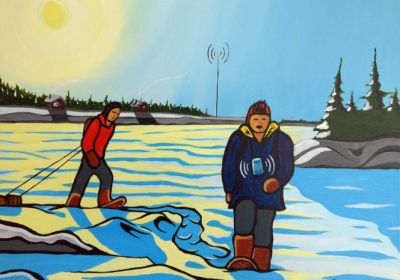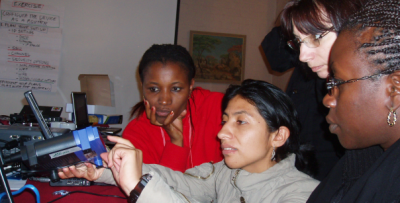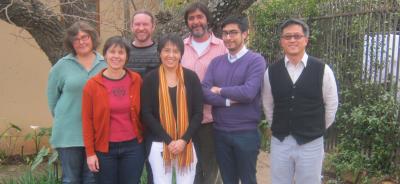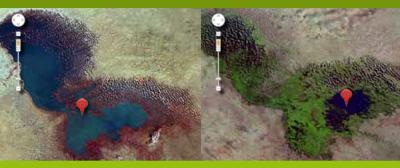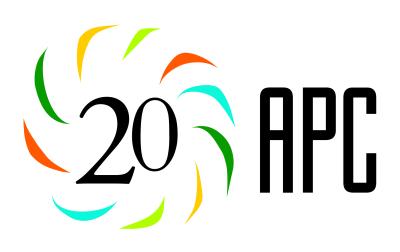IDRC was one of our earliest supporters, providing funds needed to launch the APC Women’s Networking Support Programme (APC WNSP) activities around the world during the lead-up to the 1995 UN World Conference on Women. IDRC also provided support to some of the earliest work promoting connectivity through a network of store-and-forward notes in Africa, Asia, Latin America and Central and Eastern Europe. IDRC continued to support initiatives of the APC WNSP, as well as the development of our Mission-Driven Business Planning Toolkit. IDRC also provided start-up support to our internet rights work through the Global ICT Policy Monitor project, with a focus on activities in Latin America and Africa. In addition, APC’s Betinho Communications Prize to recognise socially meaningful uses of the internet was funded by IDRC for the first two years, along with partial support for the APC Africa Hafkin Prize and, in 1995, for the APC Council Meeting in Brazil.
Work supported:
- Feminist Internet Research Network (2018-2022)
- Local Access Networks: Can the unconnected connect themselves? (2017-2018)
- Mapping Gender and the Information Society (2016-2017)
- A Rights-Based Approach to Internet Policy and Governance for the Advancement of Economic, Social and Cultural Rights (2013-2016)
- Building research and communications capacity for an open, fair and sustainable networked society: The APC Action Network (2010-2012)
- Implementation of a Business Development Strategy for the Gender Evaluation Methodology (GEM business model) (2010-2011)
- Capacity Building and Institutional Support Project (INSPRO I and II) (2005-2010)
- Communication for Influence in Central, East and West Africa (CICEWA) (2008-2010)
- D-Island – online spaces for ICT4D practitioners (2010) Towards Détente in Media Piracy (2008-2010)
- Gender and ICT Evaluation Methodology (GEM II) (2006-2009)
- Communication for Influence in Latin America (CILAC) (2008-2009)
- GenARDIS project (2005-2009) Feminist Tech Exchange (FTX) (2008)
- Institutional strengthening and assessment of KICTANet (2007)
- Harambee (2006-2007) GEM workshop in Asia (2006)
- GenARDIS project evaluation (2006)
- Making EASSy Easy (2006)
- Capacity Building for Community Wireless Connectivity in Africa (2004-2006)
- Gender Research in Africa into ICTs for Empowerment (GRACE) (2005-2006)
- Media and ICT policy meeting (2006) Meeting of all wireless partners (2006)
- Wireless Going Forward (2006)
- Wireless Training workshop at the World Summit on the Information Society (WSIS) (2005)
- Global Gender and ICT Forum (2004)
- Africa ICT Policy Monitor project (2004-2005) Africa Hafkin Prize (2003-2005)
- Betinho Prize (2003 and 2005)
- Gender and ICT Evaluation Methodology (GEM) (2003-2004)
- LAC and Africa ICT Policy Monitor Projects (2003)
